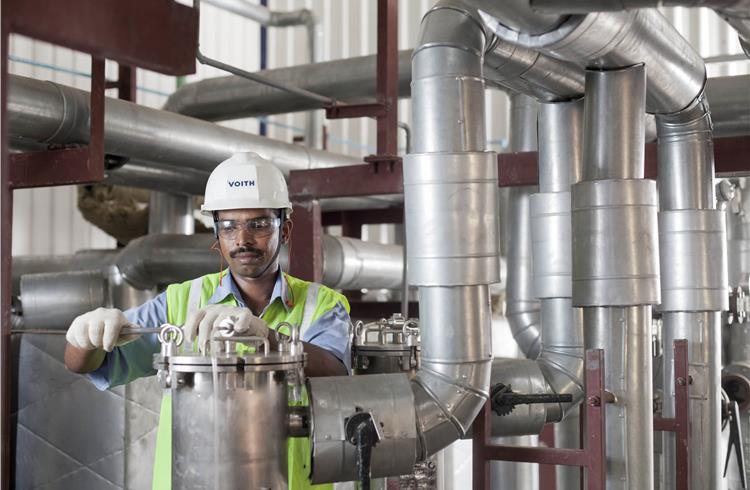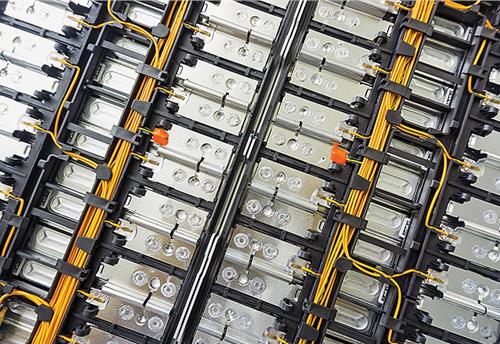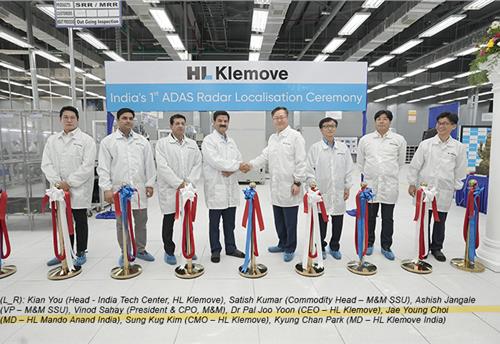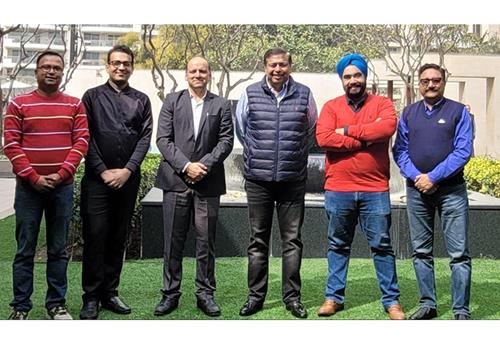Voith Industrial Services looks to kaizen-ize manufacturing in India
Pune-based provider of industrial services to vehicle OEMs and Tier 1 suppliers helps build a better and more efficient manufacturing setup and also save costs, says Amit Panday.
Voith Industrial Services India (VISI), the four-year-old Indian arm of German giant Voith’s industrial services vertical, hopes to be the preferred industrial services partner to automobile OEMs and Tier 1 suppliers in India.
While automobiles and auto component manufacturing are the two most-talked-about business segments, industrial services specifically directed at them seldom find serious takers. Vehicle manufacturing plants across segments are the backbone of the entire production and demand-supply equation in the vehicle market. Work stoppage or temporary shutdown of a busy assembly line often leads to huge losses for the manufacturer. To avoid such losses before they occur, automakers rope in industrial services providers such as Voith.
Being the youngest arm of the Voith Group in India, VISI focusses on three broad service lines – maintenance services (production equipment, facility services, powertrain services, paint shop services), solutions (project management, automation, energy conservation and condition based monitoring) and production support services (value added assembly, wheel and tyre, in-plant logistics and crating services).
For example, when it comes to the maintenance of a production plant, VISI can provide services for examining the operational capabilities of different areas within the plant (weld shop, body shop, paint shop, assembly shop, and machine shop), preventive and breakdown maintenance, and even for managing the spare parts inventory.
Sudhir Gurtoo, managing director, Voith Industrial Services India, an automotive industry veteran who has been engaged in the industry for nearly three decades, says that “to start something like this, one should know how an automotive plant runs. If one is willing to undertake a task, the foremost responsibility lies in the sense of ownership. Germans take ownership of what they do. We are trying to inculcate that sense of ownership in the current workforce that is driving the automotive manufacturing setup in India. For example, if an OEM tells us to take the ownership of an assembly line, we do that. If any issue arises, we are liable for it. We take ownership of whatever we do.”
24/7 SERVICE
Gurtoo emphasises that to ensure that production equipment operates smoothly across various automotive plants in India, VISI maintenance experts are present at the respective (customer) sites at all times. “If you visit any of our customers’ plants, there will be someone from Voith Industrial Services. He might be working on breakdown maintenance or PM (predictive maintenance) he might be working on production support services. Our experts work at all times including Sundays, 365 days in the year,” he adds.
Giving an example without disclosing the name of his customer, Gurtoo says that VISI has deployed up to 150 experts from its Indian team inside an automaker’s plant to perform functions across a number of service lines. According to him, plant maintenance alone can have a team of 10-50 experts deputed in three shifts, depending upon the size and requirement of the OEM on the shopfloor.
Highlighting the importance of predictive maintenance, he says, “In one such case, we detected an early failure of a fan where a blade had developed a crack. That could have possibly resulted into shutting down the production. We managed to save the damages and costs by fixing the problem before it occurred.”
A big challenge which Gurtoo often faces is the time associated with returns on proven investments. “If there is a brilliant idea but investing in that can start paying back only after two years, customers usually delay the problem or reject the same. My understanding so far says that companies want to put money into product- specific areas as a priority rather than the plant. In most of the cases where they are investing in the manufacturing facility, they wish to start reaping the benefits within the first two years,” he explains.
However, on the other hand, VISI, which also provides industrial services to the growing number of Tier 1 suppliers besides OEMs, is seeing a trend where the latter are increasingly focussing on kaizen practices such as brainstorming new ways to cut costs, save energy units, reduce waste of natural resources and other areas. Voith’s experts, who spend considerable time on the shopfloor, pitch in with new ideas. These ideas are later studied, analysed and implemented. “The majority of these ideas end up benefitting our customers,” says Gurtoo.
Giving a connect to one of these ideas, he underlines that “press shop, paint shop (because of the room-sized ovens) within an automotive manufacturing plant are energy guzzlers. Even the conveyors and big fans installed to take care of the air flow consume a lot of energy. We can tweak the existing setup to save up on the consumption of energy units, which are usually proven on paper. We have to ensure fix returns to the customer, our processes are very methodical.”
INDIAN FOOTPRINT
Voith Industrial Services globally holds a 19 percent share in the 5.7 billion euro Voith GmbH and employs more than 20,000 experts across over 200 locations worldwide. The entity in India has a team of 535 skilled experts (set up since the beginning of its operations in 2010) and is growing at a compounded annual growth rate (CAGR) of 35 percent currently.
According to Gurtoo, he has to maintain the CAGR for next 3-4 years. While the firm has its headquarters in Pune, it has site offices across Delhi, Bangalore and Chennai. Additionally, his team members operate out of 31 customer sites across India.
The company official says that it is undergoing a transformation from its phase I operations to phase II, which focusses on more complex areas that requires niche expertise and production support services. “Under phase I, we established ourselves here, imparted relatively basic skills, created a pool of skilled manpower and taught a sense of ownership. Moving on to phase II, we will focus more on intensive training, routing of our resources, prioritisation, and complex areas within equipment maintenance like robotics,” he adds.
TRAINING IS KEY
VISI conducts an exhaustive training programme for the new recruits, who are generally ITI passouts with “only paper knowledge,” as Gurtoo puts it. The company follows respective training targets for each month wherein it provides training either at its own facility (situated at Chakan) or even at its customer’s facilities to give a hands-on experience. While Voith has an academy specifically to train people under these heads in Germany, Gurtoo hopes that VISI will set up one such academy in the future. The company is trying to transform the task-driven manufacturing jobs into quality, process-driven and safe assignments.
RELATED ARTICLES
Strong support for EV ambitions
New policies and initiatives reflect the government's comprehensive approach to driving industrial growth, fostering inn...
Branded content: HL Klemove inaugurates first Local ADAS Radar Manufacturing Unit in India, marks a significant achievement in “Make in India” initiative
The inauguration ceremony was held in the presence of Vinod Sahay, President and CPO of Mahindra & Mahindra Ltd. and Dr....
BluWheelz to 'Green Up' logistics sector
With their EVs-as-a-service solution, the startup is playing it smart with costs and looking to electrify the entire seg...





 14 Jul 2014
14 Jul 2014
 7010 Views
7010 Views





 Autocar Pro News Desk
Autocar Pro News Desk




